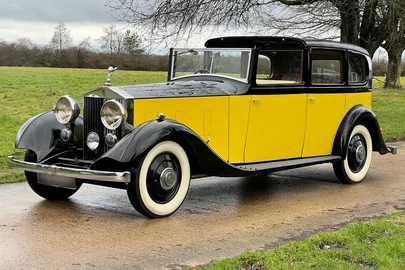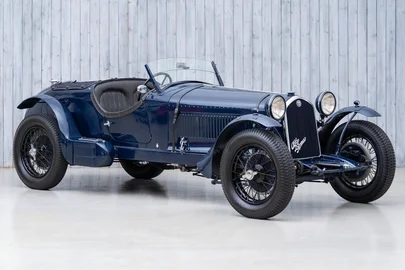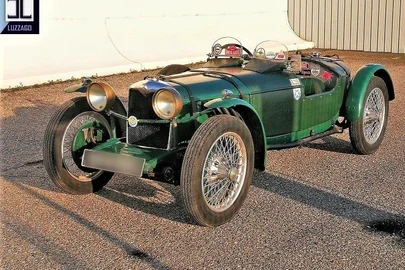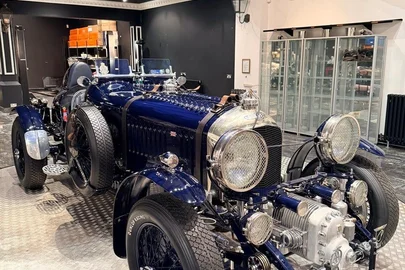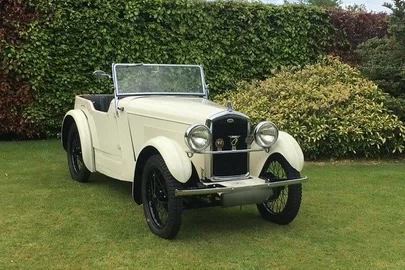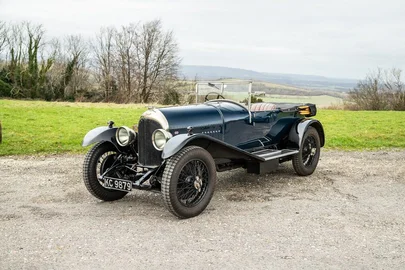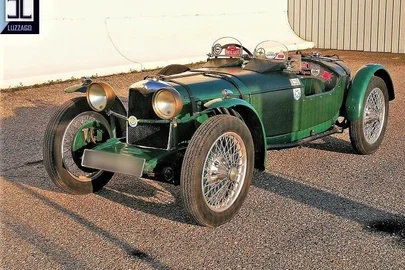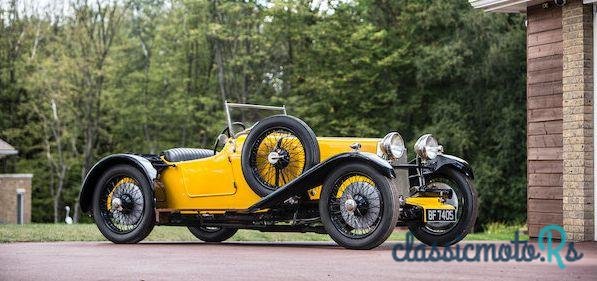
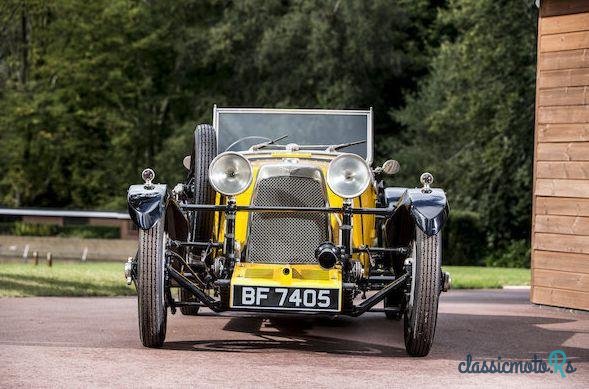
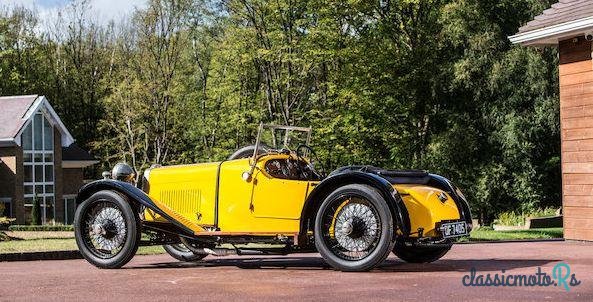
3 photos
1928' Aston Martin
Signaler cette annonce!Évaluer!Ajouter aux favoris
NégociablePublié 6 Décembre 2020ID: gOYrsa
Périmée
il y a 5 années, 2 mois
il y a 5 années, 2 mois
Information from the owner
Corps: Coupés Sportives
Âge: 92 années
Couleur de la carrosserie: Noir
Commentaires du vendeur sur 1928' Aston Martin
The first 'Standard Sports Model' Displayed at the 1928 London Motor Show Unique specification The third oldest Bertelli-era Aston Martin known to be running Restored by Ecurie Bertelli Ltd
Manufactured by Robert Bamford and Lionel Martin, the first Aston-Martins (the hyphen is correct for the period) rapidly established a reputation for high performance and sporting prowess in the immediate post-WWI years. The company traces its history back to 1914, when Bamford & Martin Ltd built their first car - ultimately known as 'Coal Scuttle' - at their works in Henniker Place, Chelsea. The coming of war saw the two founders engaged in more important activities, and 'Coal Scuttle' remained the sole Bamford & Martin car for some years. The company later changed its name to Aston-Martin, retaining the name of founder Lionel Martin and borrowing from the Aston hill climb near Aylesbury, Buckinghamshire (the hyphen was later dropped).
The first Astons used four-cylinder sidevalve engines, and though the firm experimented with overhead-camshaft types, it was the trusty sidevalves that did most of the winning. In 1922, the sidevalve Aston Martin enjoyed its finest hour when one nicknamed 'Rabbit', and latterly known as 'Bunny', set 25 light-car and 10 outright world speed records at Brooklands.
Unfortunately, the management's concentration on motor sport, while accruing invaluable publicity, distracted it from the business of manufacturing cars for sale, the result being just 50-or-so sold by 1925 when the company underwent the first of what would be many changes of ownership.
The foundations were laid for the commencement of proper series production with the formation of Aston Martin Motors Ltd in 1926 under the stewardship of Augustus 'Bert' Bertelli and William Renwick. Built at the firm's new Feltham works, the 'new generation' of 1½-litre Aston Martins was first displayed at the 1927 London Motor Show at Olympia. Like his predecessors, 'Bert' Bertelli understood the effect of competition success on Aston Martin sales and sanctioned the construction of two works racers for the 1928 season. Based on the 1½-litre, overhead-camshaft road car, the duo featured dry-sump lubrication, and this feature was carried over to the International sports model, introduced in 1929.
In the meantime, Aston Martin had displayed three new models on its stand at the 1928 London Motor Show at Olympia: a four-seat open car, a four-door saloon, and an open two-seater on the short (8' 6") chassis, which was described as the 'Standard Sports Model'. The latter was chassis number 'TS10', the car offered here, which was only the tenth car completed at the firm's new Feltham workshops. Although the Standard Sports Model was described in the catalogue as having a dry sump, 'TS10' was displayed at Olympia with a wet-sump engine, as recorded by Inman Hunter in his definitive work: Aston Martin 1913-1947 (page 95). Finished in brown and boasting long black wings, 'TS10' was sold from the show stand to the Maharajah of Patiala and exported to India where the body's ash frame was replaced with either mahogany or teak to withstand attack from wood-eating insects.
Little is known of the car's subsequent history in India; however, in 1967 it was offered for sale by a Mr Paraamjit of Lucknow, Uttar Pradesh but did not surface again until it was found - in pieces - by the immediately preceding owner. By this time the Aston had been much modified and lost both its original wet-sump engine and its worm drive rear axle. Restoration was not thought to be possible.
However, in 2006 Andy Bell of Ecurie Bertelli Ltd, the world-renowned authority on pre-war Aston Martins, located a 'T' type engine, number 'ST18', and found the last known wet sump in a bin of parts in his workshop. It was decided to restore 'TS10' using this engine and a newly made rear axle. The car was shipped from Malta to Ecurie Bertelli's workshop at Olney in the UK for restoration to exact and original specification, which took almost three years to complete. Unusually, 'TS10' has front-opening doors, which is the original design but not what was commonly found in the era.
'TS10' is the first Standard Sports Model built and a direct ancestor to today's Aston Martins; it is also the third oldest Bertelli-era Aston Martin known to be still running. Unique and magnificently presented, it represents the dawn of one of Britain's greatest sporting marques and would surely take pride of place in any collection of fine Aston Martin motor cars.
This car is to be auctioned at our 'The Bond Street Sale' auction.
AUCTION TIMES
Wednesday 16 December, starting at 17:00pm
VIEWING
4-16 December by appointment at Classic Car Storage (CCS), Petersfield
Call or message to arrange an appointment to view.
In light of the current government guidelines and relaxed measures we are delighted to welcome viewing. We will ensure social distancing measures are in place, with gloves and sanitiser available for clients wishing to view.
LIVE AND ONLINE AUCTION
Please note that whilst public viewing is available by appointment, the auction itself will be conducted from our New Bond Street Saleroom. No Lots will be on view at New Bond Street. All bidding will be conducted either live in the Saleroom or via Online, Telephone and Absentee Bidding.
Please contact our Bids Department to register by clicking 'Message the seller'.
COLLECTION OF PURCHASED LOTS
Cars are to be collected from CCS by 5pm on Friday 18 December thereafter storage will be charged at £14/day (+vat).
Please message us with your collection or transport instructions as soon as possible following your successful bid. Failure to instruct Bonhams by the given time will result in your vehicle being stored at your expense, as detailed in the Conditions of Sale. Buyers should satisfy themselves that they have collected all relevant log books, documents and keys relating to their Lot(s) at time of collection.
Manufactured by Robert Bamford and Lionel Martin, the first Aston-Martins (the hyphen is correct for the period) rapidly established a reputation for high performance and sporting prowess in the immediate post-WWI years. The company traces its history back to 1914, when Bamford & Martin Ltd built their first car - ultimately known as 'Coal Scuttle' - at their works in Henniker Place, Chelsea. The coming of war saw the two founders engaged in more important activities, and 'Coal Scuttle' remained the sole Bamford & Martin car for some years. The company later changed its name to Aston-Martin, retaining the name of founder Lionel Martin and borrowing from the Aston hill climb near Aylesbury, Buckinghamshire (the hyphen was later dropped).
The first Astons used four-cylinder sidevalve engines, and though the firm experimented with overhead-camshaft types, it was the trusty sidevalves that did most of the winning. In 1922, the sidevalve Aston Martin enjoyed its finest hour when one nicknamed 'Rabbit', and latterly known as 'Bunny', set 25 light-car and 10 outright world speed records at Brooklands.
Unfortunately, the management's concentration on motor sport, while accruing invaluable publicity, distracted it from the business of manufacturing cars for sale, the result being just 50-or-so sold by 1925 when the company underwent the first of what would be many changes of ownership.
The foundations were laid for the commencement of proper series production with the formation of Aston Martin Motors Ltd in 1926 under the stewardship of Augustus 'Bert' Bertelli and William Renwick. Built at the firm's new Feltham works, the 'new generation' of 1½-litre Aston Martins was first displayed at the 1927 London Motor Show at Olympia. Like his predecessors, 'Bert' Bertelli understood the effect of competition success on Aston Martin sales and sanctioned the construction of two works racers for the 1928 season. Based on the 1½-litre, overhead-camshaft road car, the duo featured dry-sump lubrication, and this feature was carried over to the International sports model, introduced in 1929.
In the meantime, Aston Martin had displayed three new models on its stand at the 1928 London Motor Show at Olympia: a four-seat open car, a four-door saloon, and an open two-seater on the short (8' 6") chassis, which was described as the 'Standard Sports Model'. The latter was chassis number 'TS10', the car offered here, which was only the tenth car completed at the firm's new Feltham workshops. Although the Standard Sports Model was described in the catalogue as having a dry sump, 'TS10' was displayed at Olympia with a wet-sump engine, as recorded by Inman Hunter in his definitive work: Aston Martin 1913-1947 (page 95). Finished in brown and boasting long black wings, 'TS10' was sold from the show stand to the Maharajah of Patiala and exported to India where the body's ash frame was replaced with either mahogany or teak to withstand attack from wood-eating insects.
Little is known of the car's subsequent history in India; however, in 1967 it was offered for sale by a Mr Paraamjit of Lucknow, Uttar Pradesh but did not surface again until it was found - in pieces - by the immediately preceding owner. By this time the Aston had been much modified and lost both its original wet-sump engine and its worm drive rear axle. Restoration was not thought to be possible.
However, in 2006 Andy Bell of Ecurie Bertelli Ltd, the world-renowned authority on pre-war Aston Martins, located a 'T' type engine, number 'ST18', and found the last known wet sump in a bin of parts in his workshop. It was decided to restore 'TS10' using this engine and a newly made rear axle. The car was shipped from Malta to Ecurie Bertelli's workshop at Olney in the UK for restoration to exact and original specification, which took almost three years to complete. Unusually, 'TS10' has front-opening doors, which is the original design but not what was commonly found in the era.
'TS10' is the first Standard Sports Model built and a direct ancestor to today's Aston Martins; it is also the third oldest Bertelli-era Aston Martin known to be still running. Unique and magnificently presented, it represents the dawn of one of Britain's greatest sporting marques and would surely take pride of place in any collection of fine Aston Martin motor cars.
This car is to be auctioned at our 'The Bond Street Sale' auction.
AUCTION TIMES
Wednesday 16 December, starting at 17:00pm
VIEWING
4-16 December by appointment at Classic Car Storage (CCS), Petersfield
Call or message to arrange an appointment to view.
In light of the current government guidelines and relaxed measures we are delighted to welcome viewing. We will ensure social distancing measures are in place, with gloves and sanitiser available for clients wishing to view.
LIVE AND ONLINE AUCTION
Please note that whilst public viewing is available by appointment, the auction itself will be conducted from our New Bond Street Saleroom. No Lots will be on view at New Bond Street. All bidding will be conducted either live in the Saleroom or via Online, Telephone and Absentee Bidding.
Please contact our Bids Department to register by clicking 'Message the seller'.
COLLECTION OF PURCHASED LOTS
Cars are to be collected from CCS by 5pm on Friday 18 December thereafter storage will be charged at £14/day (+vat).
Please message us with your collection or transport instructions as soon as possible following your successful bid. Failure to instruct Bonhams by the given time will result in your vehicle being stored at your expense, as detailed in the Conditions of Sale. Buyers should satisfy themselves that they have collected all relevant log books, documents and keys relating to their Lot(s) at time of collection.
